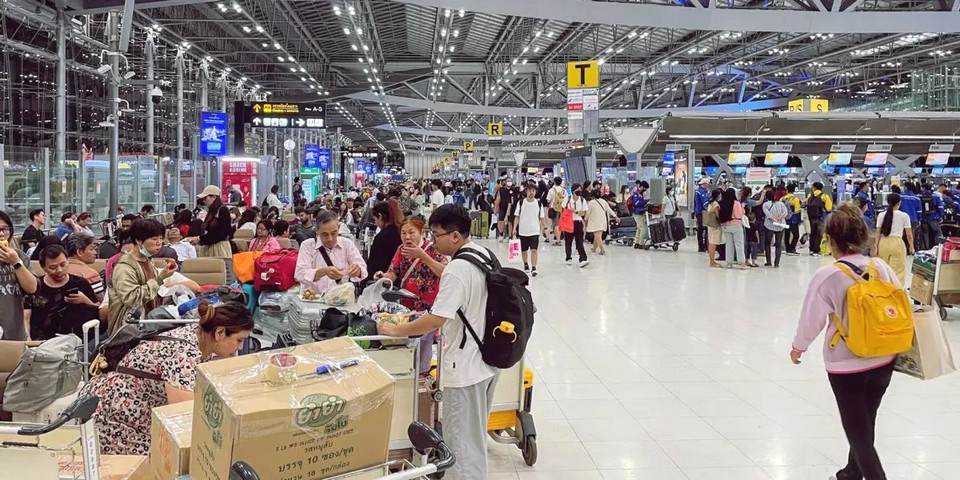For expatriates living in Thailand, dental health insurance is essential. Many expats rely on private dental insurance plans to cover routine and major dental treatments, as employer-provided coverage often falls short.
To sum up, expats living in Thailand should invest in dental insurance from a private provider to ensure that they and their families are adequately covered in the event of dental emergencies.
This article by our friends at Pacific Prime explores the importance of dental insurance for expats in Thailand, the types of treatments covered, and why securing private insurance is a necessity.
Why dental insurance matters for expats
Expatriates living abroad face unique healthcare challenges, and dental care is no exception; in fact, it's very expensive. While Thailand boasts a high standard of dental care at affordable rates, having dental insurance in Thailand provides peace of mind by covering routine and emergency treatments, making up for the gaps in coverage offered by employer-provided insurance.
As such, expats are advised to opt for expat dental insurance to ensure that they and their families are protected from unexpected dental costs, from routine checkups to more complex procedures. Dental treatments can be grouped into routine (preventive)and major (restorative or surgical) procedures, each playing a vital role in maintaining oral health. Here's a breakdown of their importance, ordered by priority.
1. Routine dental treatments (preventive care)
Routine dental treatments, also known as preventive care, are essential for maintaining long-term oral health. These treatments focus on early detection and prevention of common dental issues such as cavities and gum disease.
Regular check-ups, cleanings, and x-rays allow for early intervention, helping to avoid more complex and costly procedures later. By promoting oral hygiene and addressing minor problems before they escalate, preventive care not only supports dental health but also contributes to overall well-being.
· Consultations & examinations: These are crucial as they help detect dental issues early, before they worsen. Regular check-ups often prevent more serious conditions like cavities or gum disease.
· Tooth cleanings: Professional cleanings remove plaque and tartar, reducing the risk of decay and periodontal disease. They maintain both oral and systemic health by preventing bacteria from spreading to other parts of the body.
· X-rays: Essential for diagnosing hidden issues such as tooth decay between teeth, infections, or bone loss that are not visible during a regular examination.
· Fillings: They restore teeth damaged by cavities, preventing further decay and preserving tooth structure.
· Emergency treatments: Emergency care addresses sudden dental issues like tooth pain or trauma, preventing infection or complications.
2. Major dental treatments (restorative or surgical)

Major dental treatments, often restorative or surgical in nature, are necessary to address severe dental issues that go beyond routine care. These procedures, such as crowns, bridges, root scaling, and oral surgery, aim to restore both function and aesthetics to damaged teeth.
By treating complex conditions like gum disease or tooth decay, major dental treatments play a crucial role in maintaining oral health and preventing further complications. Expats in Thailand are encouraged to have dental insurance in place to cover these higher-cost treatments and ensure access to quality care.
· Tooth adjustments & root scaling: These treatments manage gum disease by removing plaque and tartar from beneath the gum line, preventing further bone loss and tooth loss.
· Periodontal treatments: In advanced gum disease cases, procedures like root planing and flap surgery help prevent tooth loss and reduce the need for future dental surgeries.
· Crowns & bridges: Crowns protect severely damaged teeth, while bridges replace missing teeth, both essential for maintaining oral function and aesthetics.
· Dentures & repairs: Dentures restore the ability to chew and speak for those with missing teeth, improving quality of life. Repairs help prolong the longevity of existing dentures.
· Surgical procedures: These include complex extractions and dental implants, which are often necessary when preventive care is no longer sufficient.
Choosing the right health and dental insurance plans
For those looking for broader coverage, expats can choose from plans that combine both dental and health insurance. These plans offer a variety of benefits, such as inpatient and outpatient medical coverage, emergency services, and vision care.
Keep in mind that the vast majority of expat dental insurance policies will pay for any dental issues that an employee may have had in the past. That's because it's very rare for someone to have never had dental cleanings or simple treatments before in their life, so almost everyone has a pre-existing dental condition.
Some popular plan options include international health insurance, expat health insurance, and private health insurance, which have been listed and described below:
International health insurance
International health insurance offers worldwide coverage for both medical and dental expenses. It is designed for people who travel frequently or live abroad for extended periods. This insurance ensures you receive care not only in your home country but also in the countries you visit or reside in.
A comprehensive plan may include emergency dental treatment, general check-ups, and restorative care. One key benefit is access to private healthcare facilities, including dental clinics, and English-speaking professionals in various countries. This makes international health insurance ideal for expats who want global consistency in healthcare quality.
Expat health insurance

Tailored specifically for expatriates, expat health insurance often provides both medical and dental coverage, which is vital when living abroad. These plans focus on the specific needs of expats, offering flexible coverage that includes preventive and emergency dental care. In many cases, dental coverage can be added as an optional benefit.
Expatriates benefit from having access to local dental clinics and hospitals, and many policies allow them to choose providers. Moreover, some plans may include dental cleanings, fillings, crowns, and even orthodontics, depending on the level of coverage you select.
Private health insurance in Thailand
For expatriates residing in Thailand, private health insurance is a popular choice due to its customisation options. Many private insurers offer plans specifically designed for expats, which include both medical and dental care.
In Thailand, these policies often allow you to tailor your coverage by adding dental benefits, which could range from routine check-ups and cleanings to more advanced procedures like root canals or dentures. The waiting period for major dental procedures is usually around 10 to 12 months, making early enrolment crucial if significant dental work is anticipated.
Altogether, dental insurance is an essential component of healthcare for expatriates living in Thailand. Relying on employer-provided coverage may leave gaps, especially for major dental procedures, which can lead to significant out-of-pocket expenses.
By securing international health insurance, expats can ensure comprehensive coverage for both routine care, such as check-ups and cleanings, and major treatments like crowns or root canals. This proactive approach helps avoid unexpected financial burdens and ensures access to high-quality care in Thailand's reputable dental clinics.
Additionally, many expat-specific health insurance plans offer customisable dental options that cater to the unique needs of individuals and families. For more detailed quotes or to explore the best dental insurance options available for expats in Thailand, our friends at Pacific Prime offer a range of plans from top insurers.


















